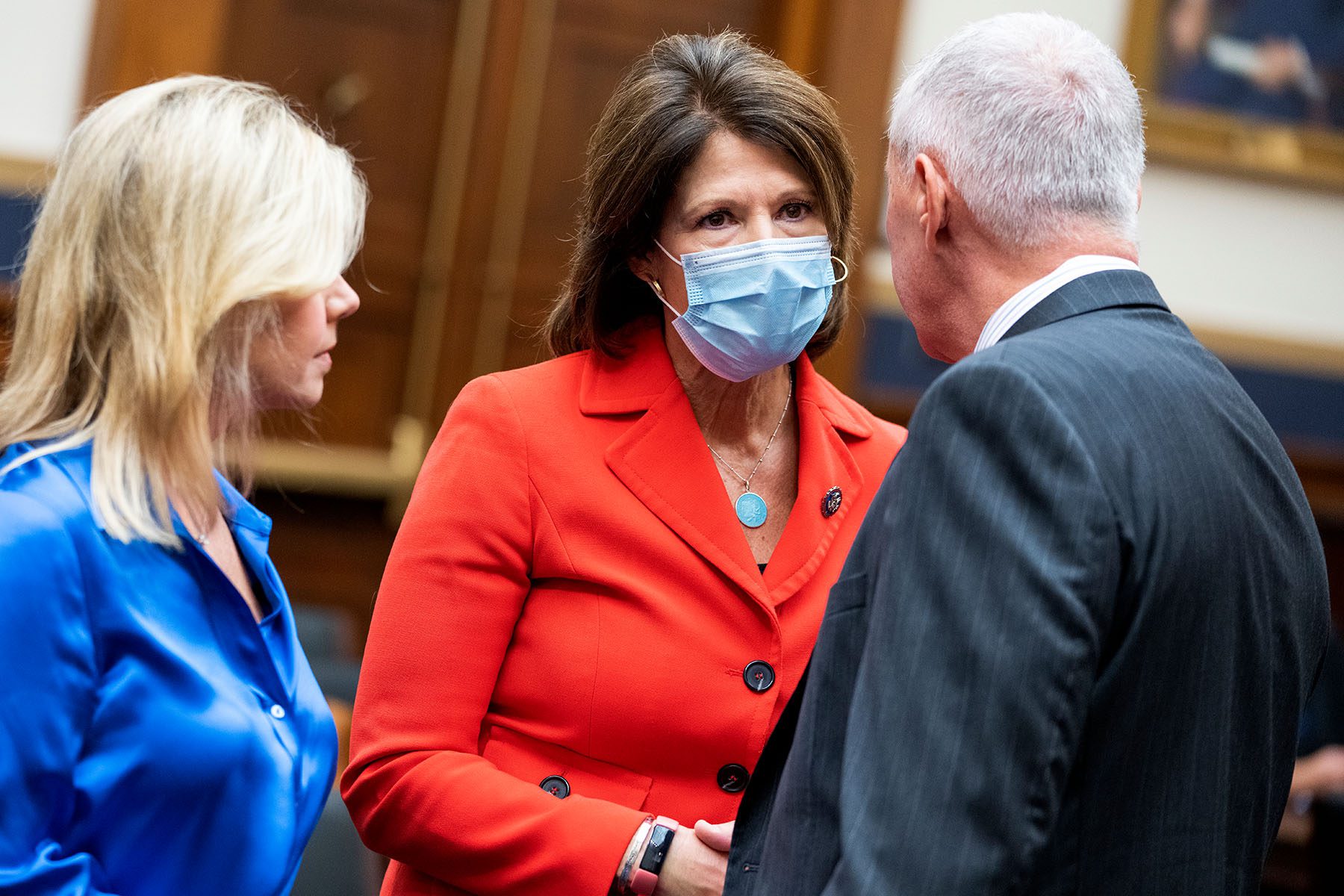The Senate approved the bill on Thursday; it now heads to President Joe Biden.
The U.S. House on Monday approved a bill that would ban mandatory arbitration in sexual harassment and assault cases brought by workers, consumers and even nursing home residents, queuing the measure up for Senate passage and President Joe Biden’s signature.
Forced arbitration clauses are bits of legalese buried in millions of standard contracts. Most workers and consumers, and an increasing number of medical patients, are unaware they have given up their right to sue over sexual assault and harassment claims by signing routine paperwork to start a new job, become a patient in a medical practice or rent a vacation apartment. The clauses are often in take-it-or-leave-it contracts that are not negotiated by both parties.
When sexual assault and harassment claims are handled by private arbitrators and not judges and juries, it can hurt workers and consumers in a variety of ways. For starters, instead of receiving a jury of their peers, their claims are heard by arbitrators who are 88 percent White and 77 percent men, according to the American Association of Justice (AAJ), a trial lawyers group.
In an interview ahead of the vote, Rep. Cheri Bustos of Illinois, who introduced the bill in the House, said the bipartisan, bicameral effort will impact “tens of millions” of Americans, including some 60 million workers who have forced arbitration clauses in their job contracts.
“It’s going to be life-changing for people all over this country,” Bustos said.
Bustos said the five-year effort to pass the Ending Forced Arbitration of Sexual Assault and Sexual Harassment Act is “really a case study on how to do legislation right” with both the House and Senate — and the two parties — working together.
Bustos, a Democrat, praised her allies in the House, including original co-sponsors Democratic Rep. Pramila Jayapal of Washington and Republican Reps. Morgan Griffith of Virginia and David Cicilline of Rhode Island, as well as in the Senate, where Democratic Sen. Kirsten Gillibrand of New York introduced the bill, along with fellow Democratic Sen. Dick Durbin of Illinois and Republican Sen. Lindsey Graham of South Carolina.
In the evenly divided, 100-seat Senate, where most legislation requires 60 votes to pass, early support from Graham, the top Republican on the Judiciary Committee, helped the bill pick up bipartisan support. The panel unanimously approved the measure last year.
Gillibrand told The 19th that the legislation “restores people’s constitutional rights that they are unwittingly and unknowingly signing away when they join a firm or a company, when they put their mother into a nursing home … when they’re signing any other contract and they don’t read all the fine print or necessarily understand the fine print.”
Senate Majority Leader Chuck Schumer said Monday that the bill was one of “numerous good proposals we can address here in the Senate on a bipartisan basis,” adding that it will quickly be brought up for a vote and that he expected it to pass with “strong bipartisan support.”
“We will not waste this historic opportunity,” Schumer said on the Senate floor.
The White House said last week that it supports the legislation and suggested it could be a model for addressing forced arbitration in other contexts, such as claims of racial discrimination, wage theft and unfair labor practices.
Congressional lawmakers have been working on the bill with former Fox News anchor Gretchen Carlson since 2017, when the #MeToo movement exposed how mandatory arbitration clauses can shield abusers from accountability. Carlson, for example, had no idea that her employment contract at the network mandated that sexual harassment claims be handled in private arbitration, and not in court, until she met with her lawyers in 2016 to discuss suing then-CEO Roger Ailes. “It was one of the darkest days of my life,” Carlson told The 19th last year.
Carlson ended up suing Ailes personally under New York civil rights law. More women came forward with similar allegations against Ailes. In September 2016, parent company 21st Century Fox paid Carlson a $20 million settlement and made a public apology. Ailes left the company with a $40 million exit package. Last year, Fox News agreed to pay a $1 million settlement to the New York City Commission on Human Rights. Under the terms of the agreement, the network cannot enforce mandatory arbitration clauses for any alleged violations of the state’s human rights law for four years.
Along the way, Carlson and another Fox alum launched the nonprofit Lift Our Voices to advocate for changes to mandatory arbitration and nondisclosure agreements (NDAs), which prevent survivors of sexual harassment and assault from going public with their claims.
The Ending Forced Arbitration of Sexual Assault and Sexual Harassment Act will amend the Federal Arbitration Act, a 100-year-old law that was initially designed to be a cost-effective way for business entities to resolve disputes. A series of Supreme Court decisions have expanded its scope. In 1992, just 2 percent of U.S. workers were subject to mandatory arbitration clauses. By 2018, it was more than 56 percent, or roughly 60 million workers, according to the Economic Policy Institute.
In workplace disputes, employers often get to choose the arbitrator. The terms of the clauses often prevent workers from publicly discussing the matter, so there is no way of knowing whether colleagues have similar claims. Women and people of color are also disproportionately subject to mandatory arbitration in the workplace, according to the AAJ, which supports the bill.
Gillibrand said arbitration is “designed to really protect businesses and it shows in payouts,” noting that, in sexual harassment cases, the median arbitration award is $30,000 versus $217,000 in a court case.
“It’s a huge difference. There’s also the power of someone’s voice in terms of calling out an employer and putting them on notice and putting harassers and predators on notice that they will be stood up to, and that they will be prosecuted,” she added.







